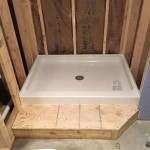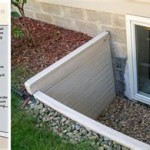Rubber Mats for Basement Floors
Basements often face humidity and moisture issues, making them prone to dampness and mold growth. Rubber mats provide an effective solution for protecting basement floors from these issues and enhancing overall comfort and safety.
Moisture Protection
Rubber mats act as a barrier between the cold, damp concrete floor and the space above, preventing moisture from seeping up and creating a humid environment. By keeping the floor dry, rubber mats help prevent mold and mildew formation, which can cause respiratory problems and other health issues.
Insulation and Comfort
The thick, dense material of rubber mats provides insulation, keeping the basement warmer and more comfortable during winter months. The spongy texture of rubber also cushions footfall, reducing noise levels and providing a more comfortable walking surface.
Slip Resistance
Rubber mats have excellent slip resistance, especially when wet. Their textured surface provides a secure footing, reducing the risk of falls and injuries, making them ideal for areas with high foot traffic or slippery surfaces.
Durability and Longevity
Rubber mats are incredibly durable and can withstand heavy foot traffic, making them a long-lasting investment for your basement. The material is resistant to wear, tear, and most chemicals, ensuring years of reliable use.
Ease of Installation
Installing rubber mats is a straightforward process. They come in interlocking tiles or rolls that can be easily cut to fit the specific dimensions of your basement floor. No special tools or adhesives are required.
Types of Rubber Mats for Basement Floors
- Interlocking Tiles: These mats come in square or rectangular tiles that interlock to form a seamless, solid surface.
- Rolls: Rubber mats in rolls provide continuous coverage for large areas and can be cut to any desired length.
- Ribbed Mats: Mats with ribbed surfaces provide extra drainage and slip resistance, suitable for areas prone to spills or moisture.
- Studded Mats: These mats have small studs on the bottom to create a buffer between the mat and the floor, allowing moisture to evaporate.
Choosing the Right Rubber Mat
When selecting rubber mats for your basement floor, consider the following factors:- Size and Shape: Measure the area you need to cover and choose mats that fit the dimensions and layout of your basement.
- Thickness: The thickness of the mat determines the level of insulation and comfort it provides. Thicker mats offer more insulation and cushioning.
- Type: Select the type of mat that best suits your needs, whether it's interlocking tiles, rolls, or mats with specific features like ribbing or studs.
Rubber mats are an excellent investment for protecting and enhancing the functionality of your basement floor. They provide moisture protection, insulation, comfort, slip resistance, and durability, creating a safer and more comfortable environment.

The Best Basement Flooring Options Inc

Rubber Flooring For Basements Vs Foam And Plastic Tiles Best Options

Rubber Flooring For Basements Vs Foam And Plastic Tiles Best Options

Interlocking Home Gym Rubber Floor Tiles Color 2x2 Ft X 8mm

What Are The Best Interlocking Rubber Floor Tile Options

The Best Basement Flooring Options Inc

Rubber Flooring For Basements What You Need To Know River Rock Surfacing

10 Basement Flooring Ideas For Finishing Your Below Grade Space Rubber Floor Tiles

Revolution Interlocking Flooring Tiles

Mobile Site Preview Rubber Flooring For Basement
See Also








